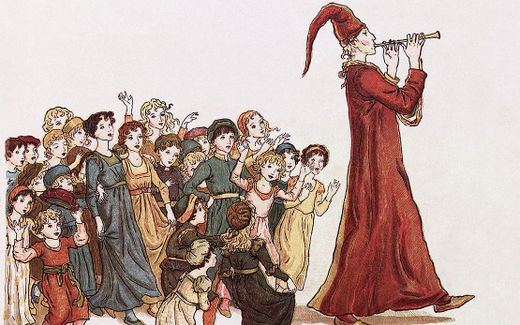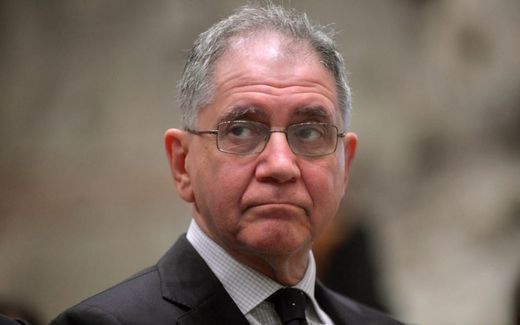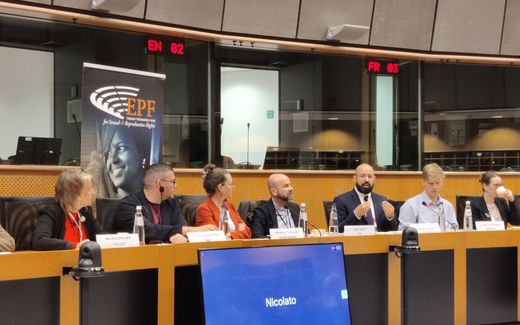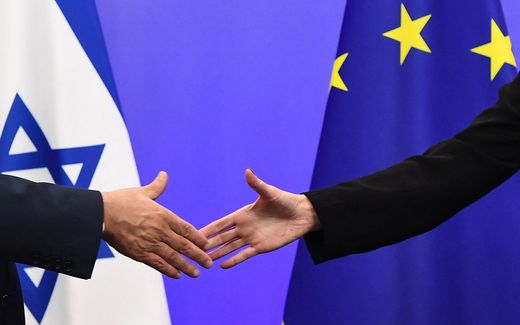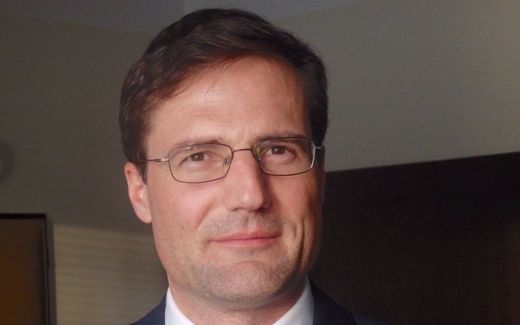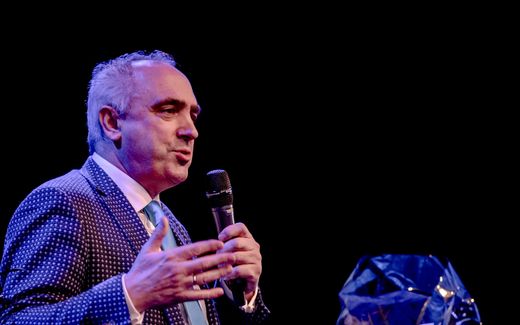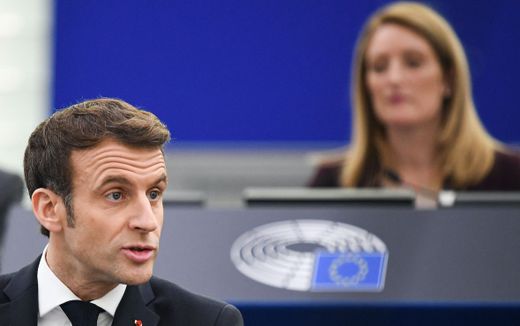Column from Bulgaria: Preparing for the European elections with prayer
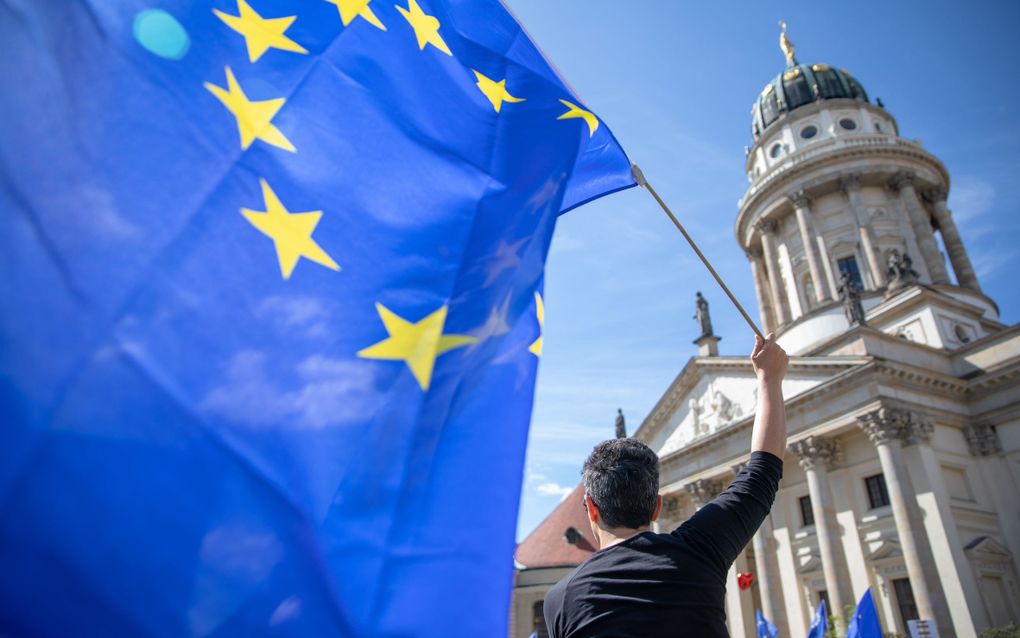
Christians all over Europe are reflecting upon the upcoming elections. Photo EPA, Omer Messinger
Christian Life
The EU countries are heading towards the elections in June. Christians have their own responsibility, our columnist Vlady Raichinov says.
Hungarian president Victor Orbán’s greatest popularity is not in his own country, according to an exclusive Euronews poll held in March 2024. He enjoys much higher support and much less criticism in Bulgaria (47 per cent positive, 24 per cent negative) than in Hungary (32 per cent positive, 54 per cent negative).
The poll was conducted by Ipsos Agency among 26,000 respondents across eighteen EU member states.
The study also reveals that Bulgaria has the highest mark across the board in positive opinion about Vladimir Putin. According to Ipsos, four out of every ten respondents approve of Kremlin’s policy.
What do these tendencies mean as Europe prepares to hold Parliamentary elections between June 6 and 9 this year? What is the role of Bulgarian politics on the backdrop of rising populistic and nationalistic movements in many countries? How is Putin’s propaganda impacting public opinion and voting dispositions?
Instability
On June 9, Bulgarians will vote for two parliaments: European and national. The country has struggled with an aggregation of a political crisis, economic instability, and corruption scandals – all of this on the backdrop of a tangible surge of Russian propaganda.
The nation’s government ended its nine-month term at the beginning of March, based on an oral agreement between competing political parties to rotate prime ministers. However, a new cabinet could not be formed, and a snap election was scheduled. It will be the country’s sixth national parliamentary vote in three years.
Disinformation
As Bulgaria prepares for two elections in one day, its media space has been increasingly flooded with disinformation and fraudulent news. Recently, Euractiv announced that almost 400 websites have been found to spread Kremlin propaganda in the Balkan country: more than anywhere else in Europe. The study has noted “a powerful machine of mushroom sites, which increased the dissemination of each message by about 400 times”. It reports an exceptionally intensive Facebook activity, having counted about 26,000 group posts and 20,000-page posts (only in 2022), with a culminating figure of 7,6 million interactions.
In the beginning of 2023, Euractiv published an updated review, interviewing representatives of Factcheck.bg, Bulgarian National Radio and AFP Factcheck. They concluded that “disinformation in Bulgaria has created a huge division in society”.
More recently, Free Europe radio has analysed the same tendency: “With its mix of pro-Russian parties, lack of political will, and low media literacy, EU member Bulgaria is a prime target for Kremlin-driven propaganda, with the country traditionally scoring low in the EU’s annual Media Literacy Index.”
The ongoing political turmoil in Bulgaria has triggered concerns as Europe prepares to vote for a new Parliament. The most recent study of Standard Eurobarometer 100 shows that Bulgarian society largely supports EU policies but with a much smaller percentage than the average for the Union. “Widespread Russian disinformation is undermining the country’s genuine reform”, analyst Hugo Blewett-Mundy pointed out in an article for EU Observer last week.
Encourage
On this backdrop, the European Evangelical Alliance (EEA) published a resource package designed to inspire Christians, local churches, denominations and national alliances to pray, think and ask questions regarding the upcoming elections – and encourage others to do the same.
The package starts by saying: “The word “politics” comes from “polis”, meaning the affairs of the city. Politics is what everyone – who chooses to get involved – can do and say to help shape the society they live in. If we opt out, others will carry on doing the shaping in ways we don’t like.”

Three separate articles are included in the resource. The first one, entitled Why it matters, explains the European Union’s main structures (Parliament, Council and Commission), the Parliament is the only one that is elected directly. It plays a crucial role in amending, negotiating and accepting legislation for the EU. It is above the European Commission, and it approves the budget of the Union – and this is why everyone’s vote matters.
The second part of the package is called Considering politics with Biblical glasses. It is based on three “frames”: who God is; who human beings are; and what went wrong with the Fall and what God will restore at the end times. The document is based on Biblical values like love, justice and freedom. It calls European Christians to “withstand the voices which would pressurise us to go along with prevailing attitudes.”
Part three of the EEA elections package is called Hope in stormy political times. It asks two questions: “What is really going on in politics?”, and “What should Christians do?”. The paper serves as a reminder that true shalom will only come at the Lord Jesus Christ’s return. Politicians are always under God’s law, and so Christians should not place their trust in human structures.
Instead, they are called to pray, discern and reflect as political parties compete for their vote. As peacemakers, Christ’s disciples should remember that “loving one’s neighbour” also applies to political, cultural and social affairs.
In a final document with prayer points, the EEA encourages local churches to plan special times of intercession for the development of European politics – including the June elections.
Bulgarian Evangelicals
The EEA office does not aim to direct how voting is done. This is a personal decision of every voter, and it needs to be protected. The document aims to help citizens elect the new EU Parliament responsibly.
On its part, the Evangelical Alliance of Bulgaria is fully aware of the problematic tendencies in the country. Christians are called to be servants of the truth, and they are responsible for calling out disinformation and propaganda for what it is.
The EEA election package is currently being translated. The Bulgarian Evangelical Alliance will publish it and spread it among its members, with a commitment to help churches and denominations in Bulgaria think with clarity, pray with urgency and vote with responsibility.
Related Articles


